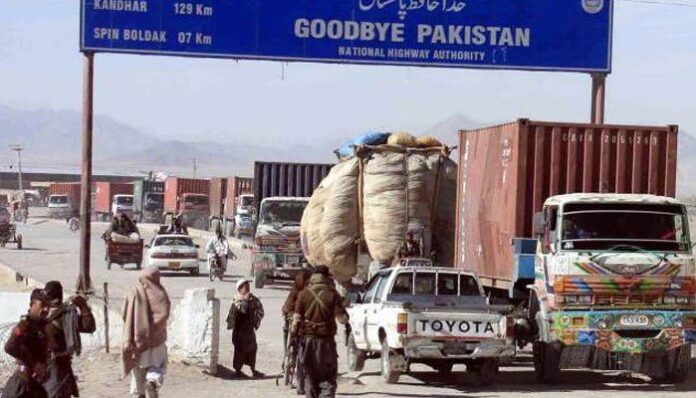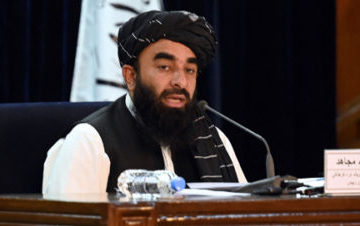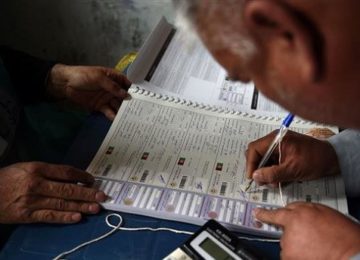Pakistan’s exports to Afghanistan in Sept were around $80m while imports were $125m
Isn’t it a shame that a nuclear-armed country with 220 million people is running a trade deficit with a conflict-battered neighbour next door? It must indeed be a matter of shame. Let us look at the latest figures: Pakistan’s exports to Afghanistan in September numbered around $80 million. The imports from there clocked at $125 million. The total bilateral trade in September 2021 stood at around $1.83 billion. Pakistan exported about $859 million worth of goods and its imports were registered at around $976 million. So the balance of trade has tilted in favour of a country that is under international sanctions and has been through four decades of war.
Higher coal imports from Afghanistan since early this year notwithstanding, the history of bilateral as well as the Afghan transit trade via Pakistan has been chequered, at best — largely because of a cold-blooded bureaucracy, security-centric approaches, and rampant corruption from Karachi to the borders such as Torkham, Chaman and Ghulam Khan.
Through its short-sighted arm-twisting instinct — and to curb corruption within Pakistan — the predatory bureaucracy has denied the country opportunities of investment by big Afghan traders, even if those staying here on long-term visas are unable to open and operate bank accounts. These potential investments moved mostly to the UAE and Turkey. This also implies a loss of investments and employment opportunities for Pakistanis.
The FBR and security agencies devised mechanisms to curb corruption on Pakistani soil but it hurts a lot of genuine Afghan traders. Abuse of transit trade is one thing but punishing Afghan exporters and importers through oscillating and whimsical tariffs under various pretexts is an altogether different bitter reality.
Afghan traders and investors either have ownership, partnership or shareholding in at least 350 industrial units in Pakistan. The produce of even these units often encounters administrative hurdles — mainly for extraction by officials including police, customs and intelligence — from the factory to the border.
After the return of the Taliban to power in August 2021, Pakistan could have attracted investments worth millions of dollars if the civil and military bureaucracy had a vision for growth and investment. The lack of such a vision and missing facilitation turned lots of Afghan investors to the UAE, Turkey, China and elsewhere. Hundreds of millions of dollars transited through Pakistan — both in cash and through banking channels — but we failed to incentivise the Afghan businessmen for parking that money here.
Look at what Egypt did after the Camp David accords with Israel: it allowed Israel to set up multiple industrial zones in the Senai area. These zones now constitute the bedrock of the Egyptian economy. Last year, the Arab world’s third-largest economy reached $1.2 billion in exports under a 2004 deal, which allows Egyptian products duty-free entry into the US, provided they include 10.5% Israeli content. Egypt is now looking to maximise the potential of the Qualified Industrial Zones (QIZ) agreement signed with Israel and the US more than 17 years ago to unlock $5 billion in exports.
In Pakistan, we are in reverse gear. Almost a decade ago, the trade with Afghanistan had crossed three billion dollars, largely in favour of Pakistan. But this had until recent months declined below $1 billion — largely for our own faults.
Hurdles that Pakistani officials create such as raising various taxes — import duties — on seasonal fruits when the produce is already on the border is a common practice. It is used as a bargaining chip for bribes on the spot to circumvent the formal channels of taxation. This way they ensure personal gains, deny the state revenue, and in a way penalise Afghan merchants and farmers.
Customs and intelligence officials often delay or block clearance — even of perishable cargo — in the name of screening. And often the electronic scanners “go out of operation” to allow for personal bargains and to mint money off the desperate transporters and truck drivers.
Isn’t it ironical that the three state-of-the-art scanners donated by Japan for quicker clearance of the Afghan transit cargo also mostly remain dysfunctional for obvious reasons. Until a few months ago, two of those scanners were out of order, while the third one also provided only limited services to Afghan importers.
This causes delays, demurrage charges and forces traders into bribing officials of all those involved in clearing the cargo.
Leading traders at the Afghan Chamber of Commerce and Industries (ACCI) in Kabul told me that even as visiting businessmen they are able to open bank accounts in the UAE, Turkey and China but Pakistan does not allow opening bank accounts even to those businessmen who possess long-term visas.
Even visa verification at the airports at times is intimidating and harassing, though not a rampant complaint. Pakistani officials should nevertheless draw consolation from the fact that according to Afghan traders at ACCI, India has stopped all sorts of visas for Afghans, including those for businessmen after the Taliban returned to power in Kabul.
Here, the dithering and extractive FBR and all those dealing with Afghanistan have certainly failed in embracing potential Afghan businessmen with open arms and thus denied the country the investment that these Afghans could have easily parked here. Elsewhere the approach is to invite as much investment as possible — without creating bureaucratic traps. Here, the FBR and other agencies only discourage and hound potential investors. No surprise Pakistan has been losing Afghan trade and investment as well as credibility of an inconsistent taxation policy that only promotes corrupt practices.
Published in The Express Tribune, October 31st, 2022.
By Imtiaz Gul








